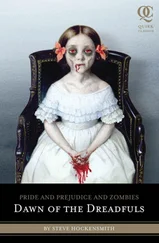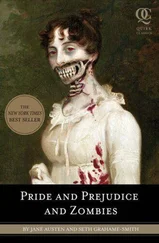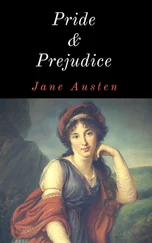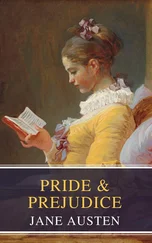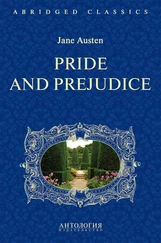1 ...7 8 9 11 12 13 ...21 of all this?”
“_I_ never saw such a woman. _I_ never saw such capacity, and
taste, and application, and elegance, as you describe united.”
Mrs. Hurst and Miss Bingley both cried out against the injustice
of her implied doubt, and were both protesting that they knew
many women who answered this description, when Mr. Hurst called
them to order, with bitter complaints of their inattention to
what was going forward. As all conversation was thereby at an
end, Elizabeth soon afterwards left the room.
“Elizabeth Bennet,” said Miss Bingley, when the door was closed
on her, “is one of those young ladies who seek to recommend
themselves to the other sex by undervaluing their own; and with
many men, I dare say, it succeeds. But, in my opinion, it is a
paltry device, a very mean art.”
“Undoubtedly,” replied Darcy, to whom this remark was chiefly
addressed, “there is a meanness in _all_ the arts which ladies
sometimes condescend to employ for captivation. Whatever bears
affinity to cunning is despicable.”
Miss Bingley was not so entirely satisfied with this reply as to
continue the subject.
Elizabeth joined them again only to say that her sister was
worse, and that she could not leave her. Bingley urged Mr. Jones
being sent for immediately; while his sisters, convinced that no
country advice could be of any service, recommended an express to
town for one of the most eminent physicians. This she would not
hear of; but she was not so unwilling to comply with their
brother’s proposal; and it was settled that Mr. Jones should be
sent for early in the morning, if Miss Bennet were not decidedly
better. Bingley was quite uncomfortable; his sisters declared
that they were miserable. They solaced their wretchedness,
however, by duets after supper, while he could find no better
relief to his feelings than by giving his housekeeper directions
that every attention might be paid to the sick lady and her
sister.
Elizabeth passed the chief of the night in her sister’s room, and
in the morning had the pleasure of being able to send a tolerable
answer to the enquiries which she very early received from Mr.
Bingley by a housemaid, and some time afterwards from the two
elegant ladies who waited on his sisters. In spite of this
amendment, however, she requested to have a note sent to
Longbourn, desiring her mother to visit Jane, and form her own
judgement of her situation. The note was immediately dispatched,
and its contents as quickly complied with. Mrs. Bennet,
accompanied by her two youngest girls, reached Netherfield soon
after the family breakfast.
Had she found Jane in any apparent danger, Mrs. Bennet would have
been very miserable; but being satisfied on seeing her that her
illness was not alarming, she had no wish of her recovering
immediately, as her restoration to health would probably remove
her from Netherfield. She would not listen, therefore, to her
daughter’s proposal of being carried home; neither did the
apothecary, who arrived about the same time, think it at all
advisable. After sitting a little while with Jane, on Miss
Bingley’s appearance and invitation, the mother and three
daughters all attended her into the breakfast parlour. Bingley
met them with hopes that Mrs. Bennet had not found Miss Bennet
worse than she expected.
“Indeed I have, sir,” was her answer. “She is a great deal too
ill to be moved. Mr. Jones says we must not think of moving her.
We must trespass a little longer on your kindness.”
“Removed!” cried Bingley. “It must not be thought of. My sister,
I am sure, will not hear of her removal.”
“You may depend upon it, Madam,” said Miss Bingley, with cold
civility, “that Miss Bennet will receive every possible attention
while she remains with us.”
Mrs. Bennet was profuse in her acknowledgments.
“I am sure,” she added, “if it was not for such good friends I do
not know what would become of her, for she is very ill indeed,
and suffers a vast deal, though with the greatest patience in the
world, which is always the way with her, for she has, without
exception, the sweetest temper I have ever met with. I often tell
my other girls they are nothing to _her_. You have a sweet room
here, Mr. Bingley, and a charming prospect over the gravel walk.
I do not know a place in the country that is equal to
Netherfield. You will not think of quitting it in a hurry, I
hope, though you have but a short lease.”
“Whatever I do is done in a hurry,” replied he; “and therefore if
I should resolve to quit Netherfield, I should probably be off in
five minutes. At present, however, I consider myself as quite
fixed here.”
“That is exactly what I should have supposed of you,” said
Elizabeth.
“You begin to comprehend me, do you?” cried he, turning towards
her.
“Oh! yes—I understand you perfectly.”
“I wish I might take this for a compliment; but to be so easily
seen through I am afraid is pitiful.”
“That is as it happens. It does not follow that a deep, intricate
character is more or less estimable than such a one as yours.”
“Lizzy,” cried her mother, “remember where you are, and do not
run on in the wild manner that you are suffered to do at home.”
“I did not know before,” continued Bingley immediately, “that you
were a studier of character. It must be an amusing study.”
“Yes, but intricate characters are the _most_ amusing. They have
at least that advantage.”
“The country,” said Darcy, “can in general supply but a few
subjects for such a study. In a country neighbourhood you move in
a very confined and unvarying society.”
“But people themselves alter so much, that there is something new
to be observed in them for ever.”
“Yes, indeed,” cried Mrs. Bennet, offended by his manner of
mentioning a country neighbourhood. “I assure you there is quite
as much of _that_ going on in the country as in town.”
Everybody was surprised, and Darcy, after looking at her for a
moment, turned silently away. Mrs. Bennet, who fancied she had
gained a complete victory over him, continued her triumph.
“I cannot see that London has any great advantage over the
country, for my part, except the shops and public places. The
country is a vast deal pleasanter, is it not, Mr. Bingley?”
“When I am in the country,” he replied, “I never wish to leave
it; and when I am in town it is pretty much the same. They have
each their advantages, and I can be equally happy in either.”
“Aye—that is because you have the right disposition. But that
gentleman,” looking at Darcy, “seemed to think the country was
nothing at all.”
“Indeed, Mamma, you are mistaken,” said Elizabeth, blushing for
her mother. “You quite mistook Mr. Darcy. He only meant that
there was not such a variety of people to be met with in the
country as in the town, which you must acknowledge to be true.”
“Certainly, my dear, nobody said there were; but as to not
meeting with many people in this neighbourhood, I believe there
are few neighbourhoods larger. I know we dine with
four-and-twenty families.”
Nothing but concern for Elizabeth could enable Bingley to keep
his countenance. His sister was less delicate, and directed her
Читать дальше


